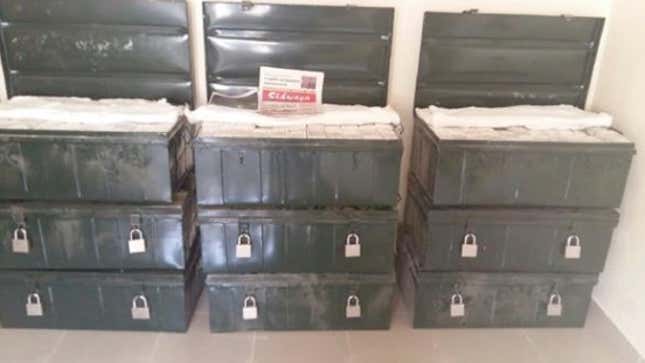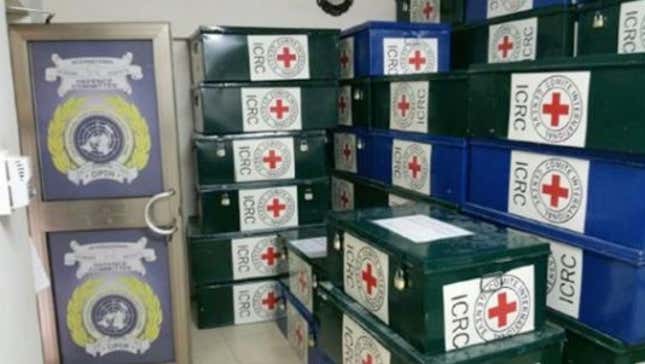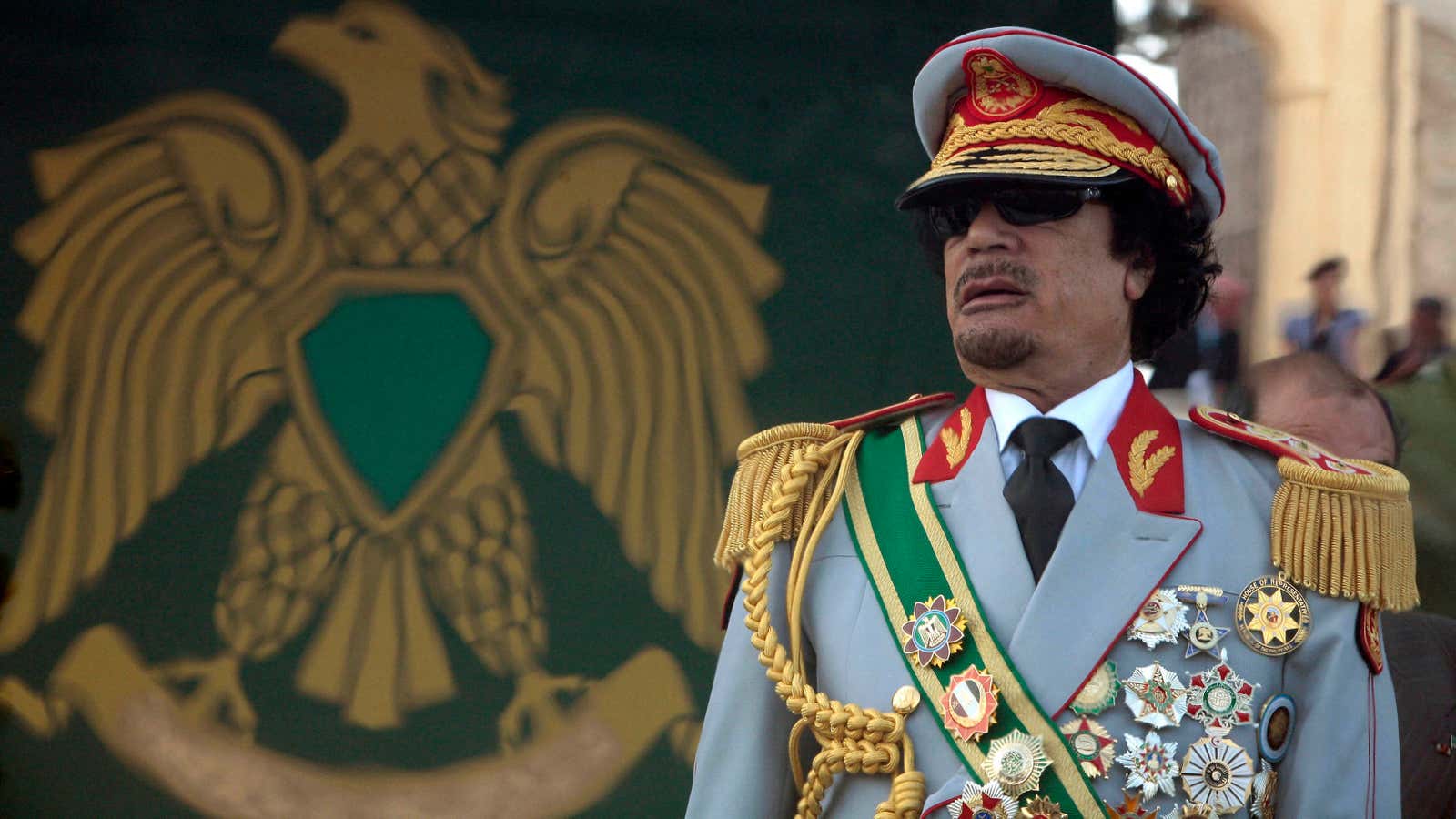The violent fall and bloody death of Muammar Gaddafi in 2011 triggered an international treasure hunt for the riches of the wealthy and flamboyant Libyan dictator. Now, a United Nations report reveals that much of Gaddafi’s loot was hidden in plain sight across Africa.
A panel of experts appointed by the United Nations Security Council released a 299-page report to the council earlier this month on the continued chaos of post-Gaddafi Libya. In it are documents, photographs, and interviews detailing how the dictator’s assets, frozen under the UN’s resolutions, flow freely around the continent.
For years, rumors have swirled that billions of dollars, at least six million carats of diamonds, and an unknown number of solid gold bars were hidden in South Africa. About $20 billion was believed to be held across four banks, while the rest was allegedly hidden in warehouses and bunkers around Pretoria and Johannesburg.
In 2013, South Africa agreed to return Libyan funds worth 10 billion rand (nearly $780 million at today’s rate) to the new government, in line with the UN’s rules, with no mention of the rumored cash, diamonds, and gold hidden in storage lock-ups.
Now, the panel’s investigation reveals that even more money than was previously reported may have moved through South Africa’s financial institutions. Information that only came to light in 2016 showed that another $8 billion was moved from a Standard Bank of South Africa account to a Stanbic account in Kenya.
“Neither Standard Bank nor Stanbic Bank Kenya has any record of the alleged transfers referred to in the United Nations Security Council Report,” the Standard Bank group told Quartz, adding that the panel of experts never contacted the banking group.
The Kenya transfer was allegedly authorized by Bashir Saleh al-Shrkawi, Gaddafi’s former banker and ex-head of the Libya Africa Investment Portfolio. The portfolio, a subsidiary of the Libyan Investment Authority, is believed to be a source of funding for the Gaddafi family, which has since been “reformed”.

There are allegedly also several stashes of cash hidden around West Africa, all traceable to an unnamed individual. The panel said they were alerted by at least six people that this shadowy figure was trying to transfer the money back to Libya. In one instance, the panel received reports of $560 million in $100 bills hidden in steel chests somewhere in Ouagadougou, the capital of Burkina Faso.
The cash is allegedly just sitting there while waiting to be transferred back to Tripoli by a local company, Societé Transport Convoi International. According to documentation confirming these logistics, the group transporting the money would have received a commission of between 10% and 35%. Burkina Faso’s government said no such company existed, but its postal address did.

Nearby Accra, the capital of Ghana, holds another part of Gaddafi’s legendary hoard. There, the money was was stored in boxes marked with the seemingly innocuous stamp of a humanitarian organization, Le Comité International pour la Protection des Droits de l’Homme. The security council panel contacted the Ghanaian police and the rights organizations’ headquarters in France, with no response. Last seen in February 2016, the money has allegedly been moved to another country.
The investigation also reveals an attempt by rebel groups to use the cash to buy arms, proof the panel says that former Gaddafi loyalists still have easy access to the loot. Like many other treasure hunts, searching for Gaddafi’s lost wealth has triggered infighting among groups claiming to represent the new democratic regime, and others trying to pull of “the biggest heist in the world.”
The UN investigation follows an exposé in the Panama Papers, published by the German newspaper, the Süddeautsche Zeitung. The papers documented how the Libya Africa Investment Portfolio invested in oil in other African states to move money around.
The investment company also held shares in a front company, the Vision Oil Services Limited, run by the controversial Panamian law firm Mossack Fonseca. The company was founded in 2007 but lay dormant until March 2011, the twilight of the Gaddafi regime. Former Gaddafi banker Bashir, who has since been spotted in Niger, South Africa, and Swaziland, dismissed the treasure hunt as “mirages.”
This story has been updated.
